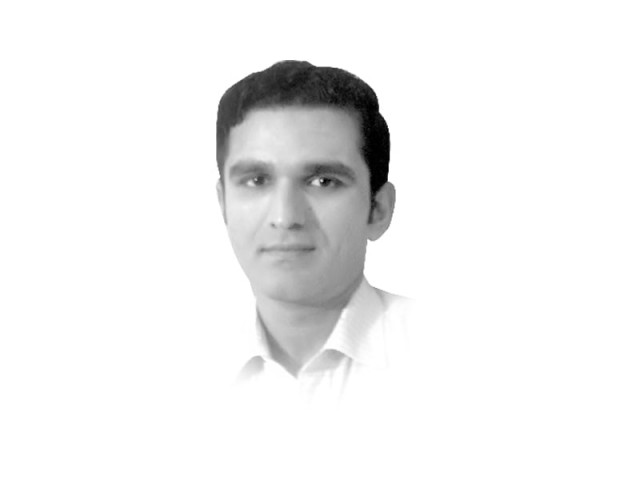Eating grass
40 years after that, we have the bomb — with power, gas, petrol, other shortages — are on the verge of eating grass

The writer teaches History at Forman Christian College and tweets at
@BangashYK
A few days ago, I had the honour of speaking at the book launch of Professor AH Nayyar’s new book, Taaqat Ka Saraab, which is an edited volume of articles in Urdu by leading Pakistani and Indian scientists pointing out the complications and dangers of being a nuclear state. In today’s Pakistan, nuclear technology is considered almost an element of faith. Hardly any space is given to those who argue that nuclear weapons are detrimental to Pakistan, South Asia and the world, and the impression is that anyone opposing them is unpatriotic, as if nuclear weapons are the cornerstone of the country. It is a pity that even after nearly 70 years of existence, many in Pakistan think that opposing anything like nuclear weapons or Islamisation of the country will undermine the existence of Pakistan. At least I am sure that Pakistan will not suddenly disappear if we give up nuclear weapons; it is a lot stronger than that.
By bringing out this book, Professor Nayyar has managed a great feat. First, for a long time the discourse against nuclear weapons was conducted solely in English, which despite being the official language of the country is properly understood by a small minority of people. This factor meant that the vast majority of the population of the country was unaware of scientific, scholarly and reasoned arguments against nuclear weapons. Bringing this important discussion into the realm of Urdu — in which an overwhelming percentage of our population interacts — is an important widening of the scope of the discussion.
Secondly, this edited volume contains articles by eminent nuclear scientists. This is a very important facet of the book — that is written by people who know what they are talking about and the discussion these scholars undertake in their articles is academic, not polemical. This is a departure from the usual practice in Pakistan where the discussion on scientific issues is often conducted by non-specialists, who rely on emotions to carry their argument. This book is full of sound scientific arguments, which are backed up with further research and academic references. A discourse with such academic depth was also missing in the Urdu literature of today in Pakistan.
Thirdly, this book is written by scientists from both Pakistan and India — the two nuclear powers in South Asia. It contains articles by three Pakistani scientists, Professor AH Nayyar, Professor Pervez Hoodbhoy and Professor Zia Mian, as well as several leading Indian and international scientists. This is a significant point because this facet exhibits that nuclear weapons are a danger for all of South Asia, not just one country or region. The bomb, once launched, is not only going to affect one country, but will have severe repercussions on both South Asian neighbours. Furthermore, despite the rhetoric of Pakistan’s bomb being the ‘Islamic bomb’, the bomb, once launched, will not discriminate between Muslims and non-Muslims and will wipe out all in its path — which means Muslims living in India will also be affected. Just as academic disciplines have no religion, weapons, too, do not discriminate on the basis of religion.
Fourthly, and most importantly perhaps, this volume lays bare the multiple problems with regard to nuclear weapons. The book has over a dozen articles, which clearly exhibit that having nuclear weapons will never improve South Asia’s security, and will in effect make it more dangerous. Not only is it nearly impossible for either India or Pakistan to stop a nuclear warhead once it is launched (since the maximum delivery time is less than 10 minutes in South Asia), no adequate civil defence plan can be organised to protect civilians in the event of a nuclear war. In short, destruction and total destruction are the only alternatives when it comes to nuclear weapons.
Taaqat Ka Saraab is a commendable book and there is a critical need for the wider public in both Pakistan and India to engage in the arguments presented in it against the nuclearisation of South Asia. All of us want the ‘good life’ as Aristotle famously exclaimed; let us at least have a life so that we can have a chance to make it good.
Published in The Express Tribune, January 24th, 2015.
Like Opinion & Editorial on Facebook, follow @ETOpEd on Twitter to receive all updates on all our daily pieces.












COMMENTS
Comments are moderated and generally will be posted if they are on-topic and not abusive.
For more information, please see our Comments FAQ